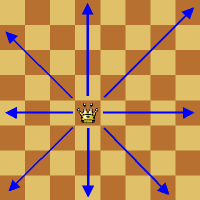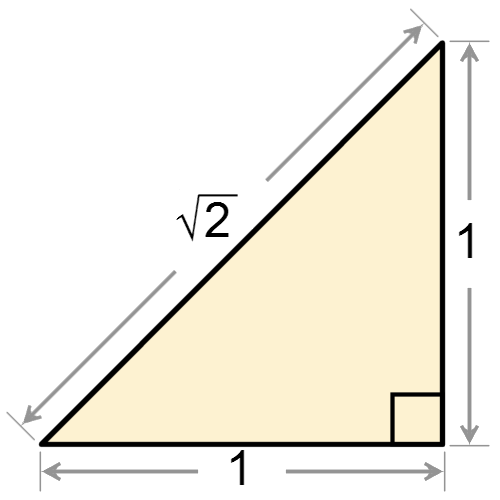CppIndia 2022-03-12
The Secret Life of Numbers
John McFarlane
johnmcfarlane.github.io/slides/2022-cppindiaAbout Me
Software Engineer, Jaguar Land Rover, Shannon, Ireland
BSI, WG21 (SG6, SG14, SG21)
Background
BBC BASIC, 6502, C, 80286/7, C++, Python
Games, Fractals, AI, Simulation, APIs, Numerics, CI
Contents
- Bit Parts
- Typology
- Range-Based Four
- Round Up
1. Bit Parts
…0.0…^1.0. Acting Natural
uint8_t have?
…00000000000101010
=
32 + 8 + 2
…00000000000101010
=
42
000000…
…00000000000000101010.00000000000000…
…00000000000000101010.00000000000000…
…00000000000000101010.00000000000000…
1.0. Act Natural
uint8_t have?
1.1. Be Positive
int8_t?
…1111111111111010110
=
-128+64+16+4+2
…1111111111111010110
=
-420000000000…
…1111111111111010110.000000000000000…
…1111111111111010110.000000000000000…
…1111111111111010110.000000000000000…
…1111111111111010110.000000000000000…
1.1. Be Positive
int8_t?
1.2. A Slice of Π
π?
…0000011.001001000011111101101010100…
…0000011.001001000011111101101010100…
…0000011.001001000011111101101010100…
1.2. A Slice of Π
π?
1.3. Floatation Devices
float?
…0000011.001001000011111101101010100…
…0000011.001001000011111101101010100…
…0000011.001001000011111101101010100…
1.3. Floatation Devices
float?
1.4. Frame the Problem
…00000000000101010.000000…
✓
…00000000000101010.000000…
✓
…00000000000101010.000000…
✓
…00000000000101010.000000…
✓
…00000000000101010.000000…
✓
…00000000000101010.000000…
✓
…00000000000101010.000000…
✓
…00000000000101010.000000…
✓
…00000000000101010.000000…
✓
…00000000000101010.000000…
✓
…00000000000101010.000000…
✓
…00000000000101010.000000…
✓
1.4. Frame the Problem
1.9.9 Warning

Slide Code Ahead!
-std=c++20#include <cnl/all.h>
using namespace cnl;
using namespace cnl::literals;
using namespace fmt;
using namespace std;
using namespace std::math;2. Typology
<O,0>-2.0. Don't Sell Yourself Short
scaled_integer{42_c}
CNL: Compositional Numeric Library
github.com/johnmcfarlane/cnl/tree/v1.x
template<int Exponent=0, int Radix=2>
class power;template<typename Rep=int, typename Scale=power<>>
class scaled_integer;template<typename Rep, int Exponent, int Radix>
class scaled_integer<Rep, power<Exponent, Radix>> {
// ...
private:
Rep n;
};value = n×RadixExponent
42... it's a byte, right?
…00000000000101010.000000…
✓
int8_t{42}scaled_integer<int8_t, power<1>>{42} // 21×21scaled_integer<int, power<1>>{42}CNL's zero-cost abstraction
auto a(float value)
-> scaled_integer<int8_t, power<1>>
{
return value;
}a(float):
mulss xmm0, DWORD PTR .LC0[rip]
cvttss2si eax, xmm0
retauto b(float value)
-> int8_t
{
return value * .5f;
}b(float):
mulss xmm0, DWORD PTR .LC0[rip]
cvttss2si eax, xmm0
retint's zero-cost abstraction
auto a(float value)
-> scaled_integer<int , power<1>>
{
return value;
}a(float):
mulss xmm0, DWORD PTR .LC0[rip]
cvttss2si eax, xmm0
retauto b(float value)
-> int
{
return value * .5f;
}b(float):
mulss xmm0, DWORD PTR .LC0[rip]
cvttss2si eax, xmm0
retstd::int8_t costly abstraction!
auto a(float value) -> int
{
return value * .5f;
}to_int8(float):
vmov.f32 s15, #5.0e-1
vmul.f32 s0, s0, s15
vcvt.s32.f32 s15, s0
vmov r0, s15 @ int
bx lrauto b(float value) -> int8_t
{
return value * .5f;
}to_int(float):
sub sp, sp, #8
vmov.f32 s15, #5.0e-1
vmul.f32 s0, s0, s15
vcvt.s32.f32 s15, s0
vstr.32 s15, [sp, #4] @ int
ldrsb r0, [sp, #4]
add sp, sp, #8
bx lr42... it's a byte, right?
…00000000000101010.000000…
✓
int8_t{42}scaled_integer<int8_t, power<1>>{42}scaled_integer<int, power<1>>{42}UDL: User-Defined Literals
namespace cnl::literals {
template<char... Chars>
constexpr auto operator ""_c() noexcept;
}// constant<42>
auto forty_two = 42_c;
// scaled_integer<int, power<1>>{42}
auto a = scaled_integer{forty_two};
int8_t{42}
scaled_integer<int8_t, power<1>>{42}
scaled_integer<int, power<1>>{42}
scaled_integer{42_c}
2.0. Don't Sell Yourself Short
scaled_integer{42_c}
2.1. All Your Base
1M
1000×1000
1111101000×1111101000
=11110100001001000000
1M
1000×1000
1111101000×1111101000
=11110100001001000000
1M
1000×1000
1111101000×1111101000
=11110100001001000000
1M
1000×1000
1111101000×1111101000
=11110100001001000000
// scaled_integer<int, power<3>>{1000}
auto k = scaled_integer{1000_c};
// scaled_integer<int, power<6>>{1000000}
auto m = k*k;2.1. All Your Base
2.1. All Your Base
1M
1000×1000
=1000000
1M
1000×1000
=1000000
1M
1000×1000
=1000000
Decimal Fixed-Point
// scaled_integer<int, power<3, 10>>{1000}
auto k = scaled_integer<int, power<3, 10>>{1000};// scaled_integer<int, power<6, 10>>{1000000}
auto m = k*k;godbolt.org/z/afznaT3Wb
2.1. All Your Base
2.2. Root Planning


1.414213562373095048801688724209698078569671875……001.01101010000010011110011001100111111100111011…
sqrt2_v<scaled_integer<int, power<-30>>>
(5.8284270763397216796875)
wandbox.org/permlink/GBY1czkvkZ8jytlSusing Distance = scaled_integer<int, power<-24>>;
Distance queens_distance(int columns, int rows)
{
columns = std::abs(columns);
rows = std::abs(rows);
int diagonal = std::min(columns, rows);
int axial = std::max(columns, rows)-diagonal;
return sqrt2_v<Distance>*diagonal+axial;
}queens_distance(int, int):
mov eax, edi
neg eax
cmovs eax, edi
mov edx, esi
neg edx
cmovs edx, esi
cmp eax, edx
mov ecx, edx
cmovle ecx, eax
cmovl eax, edx
sub eax, ecx
sal eax, 24
imul ecx, ecx, 23726566
add eax, ecx
ret
2.2. Root Planning
3. Range-Based Four
(0/0) o 3.0. Prescriptive
…00001.0110101000001001111001100110011111110…
auto root2 = sqrt2_v<scaled_integer<int, power<-30>>>;…00001.0110101000001001111001100110010000000…
auto root32 = root2 * 4;…00101.1010100000100111100110011001000000000…
<source>:7:33: error: overflow in constant expression [-fpermissive]
7 | constexpr auto root32 = root2 * 4;
| ^godbolt.org/z/n9ae91fc5
…00001.0110101000001001111001100110011111110…
constexpr auto root2 = sqrt2_v<scaled_integer<int, power<-30>>>;…00001.0110101000001001111001100110010000000…
constexpr auto root32 = root2 * 4;…0101.1010100000100111100110011001000000000…
<source>:7:33: error: overflow in constant expression [-fpermissive]
7 | constexpr auto root32 = root2 * 4;
| ^godbolt.org/z/6eeG6ETbr
If you remember one slide...
c++ -std=c++20 -fsanitize=address,undefined -fno-sanitize-recover=all
-Wall -Wextra -Werror all_your_source_files.cppauto root2 = sqrt2_v<scaled_integer<int, power<-30>>>;
auto root32 = root2 * 4;Program returned: 1
/opt/compiler-explorer/libs/cnl/v1.x/include/cnl/_impl/operators/operators.h:76:28:
runtime error: signed integer overflow:1518500249 * 4 cannot be represented in type 'int'
unsigned mu = 0;
fmt::print("{}\n", mu-1);4294967295
int s = 1;
fmt::print("{}\n", s << 31);-2147483648
int ms = 100000;
fmt::print("{}\n", short(ms));-31072
godbolt.org/z/Wxv6sjefq
// cnl/overflow_integer.h
namespace cnl {
template<
typename Rep,
class OverflowTag=undefined_overflow_tag>
class overflow_integer;
}overflow_integer<unsigned> mu = 0;
cout << (mu-1);
runtime error: execution reached an unreachable program point
overflow_integer<int> s = 1;
cout << (s<<31);
runtime error: execution reached an unreachable program point
overflow_integer<int> ms = 100000;
cout << short(ms);
runtime error: execution reached an unreachable program point
wandbox.org/permlink/7Mgbgw3AKcYeJzw0
overflow_integer<unsigned> mu = 0;
fmt::print("{}\n", mu-1);
negative overflow
overflow_integer<int> s = 1;
fmt::print("{}\n", s << 31);
positive overflow
overflow_integer<int> ms = 100000;
fmt::print("{}\n", short(ms));
positive overflow
godbolt.org/z/93oob5rK6
3.0. Prescriptive
3.1. Descriptive Range
// cnl/elastic_integer.h
namespace cnl {
template<int Digits, typename Narrowest=int>
class elastic_integer;
}11111010004
=111101000010010000002
=1110100011010100101001010001000000000000
// elastic_integer<10>{1000}
auto k = elastic_integer{1000_c};
// elastic_integer<20>{1000000}
auto m = k*k;
// elastic_integer<40>{1000000000000LL}
auto t = m*m;// cnl/elastic_integer.h
namespace cnl {
template<int Digits, typename Narrowest=int>
class elastic_integer;
}11111010004
=111101000010010000002
=1110100011010100101001010001000000000000
// elastic_integer<10>{1000}
auto k = elastic_integer{1000_c};
// elastic_integer<20>{1000000}
auto m = k*k;
// elastic_integer<40>{1000000000000LL}
auto t = m*m;// cnl/elastic_scaled_integer.h
namespace cnl {
template<int Digits, int Exponent>
using elastic_scaled_integer =
scaled_integer<elastic_integer<Digits>, power<Exponent>>;
namespace literals {
template<char ... Chars>
constexpr auto operator ""_elastic() noexcept;
}
}// user code
using namespace cnl::literals;
// elastic_scaled_integer<7, 3>
constexpr auto k = 1000_elastic;// cnl/elastic_integer.h
namespace cnl {
template<int Digits, typename Narrowest=int>
class elastic_integer;
}11111010004
=111101000010010000002
=1110100011010100101001010001000000000000
// elastic_integer<10>{1000}
auto k = elastic_integer{1000_c};
// elastic_integer<20>{1000000}
auto m = k*k;
// elastic_integer<40>{1000000000000LL}
auto t = m*m;// cnl/elastic_scaled_integer.h
namespace cnl {
template<int Digits, int Exponent>
using elastic_scaled_integer = ...;
}11111010004
=111101000010010000002
=1110100011010100101001010001000000000000
// elastic_scaled_integer<7, 3>{1000}
auto k = 1000_elastic;
// elastic_scaled_integer<14, 6>{1000000}
auto m = k*k;
// elastic_scaled_integer<28, 12>{1000000000000LL}
auto t = m*m;3.1. Descriptive Range
3.2. Adaptive Range
auto root2 = sqrt2_v<scaled_integer<int, power<-30>>>;…00001.0110101000001001111001100110010000000…
// scaled_integer<int, power<-28>>
auto root32 = root2 << 2_c;…0000101.10101000001001111001100110010000000…
// elastic_scaled_integer<31, -28>
auto root32 = root2 * 4_elastic;…0000101.10101000001001111001100110010000000…
auto f(scaled_integer<int, power<-30>> n) {
return n << 2_c;
}f:
mov eax, ediauto g(scaled_integer<int, power<-30>> n) {
return n * 4_elastic;
}g:
mov eax, edi3.2. Adaptive Range
4. Round Up
4.0. Conclusion
2∞+8∞+1- ∞+3
- 2∞+24
3scaled_integer{42_c}-
141 - 5.8284270763397216796875
- don't.
- stretch!
- don't stretch.